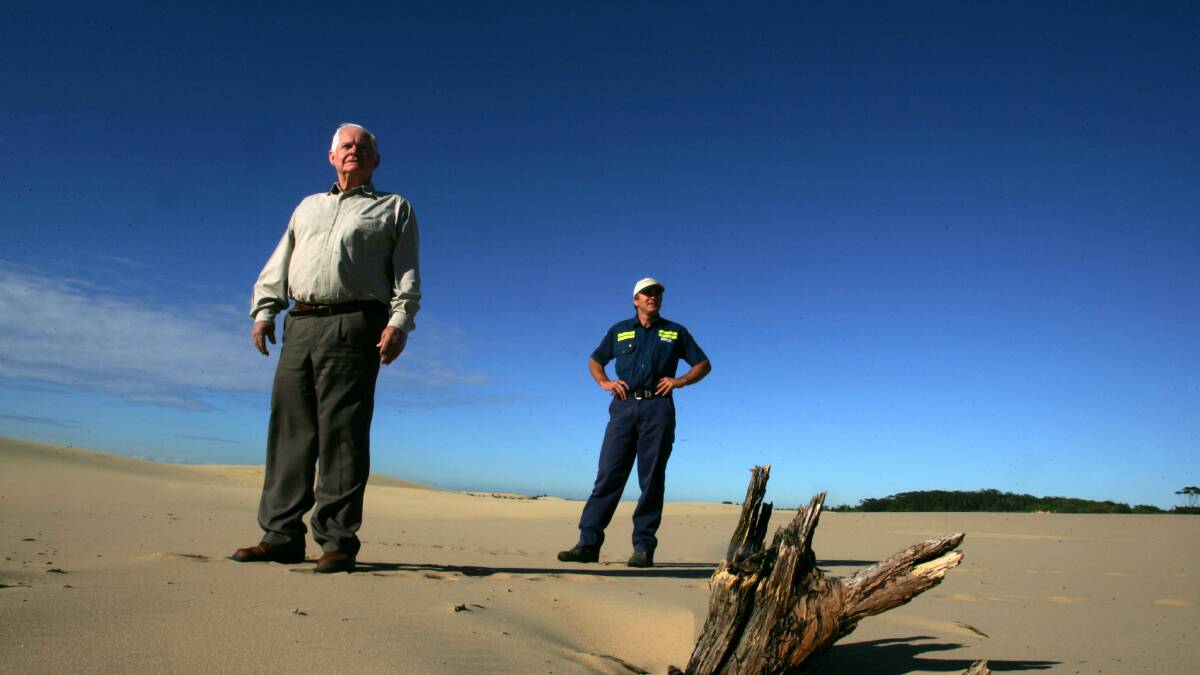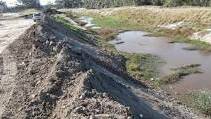
FOUR Sydney recycling centres dumped more than 60,000 tonnes of allegedly unauthorised waste at the Salt Ash business of former Port Stephens mayor Bruce MacKenzie and his son Robert until they were stopped in 2013, a Sydney court has heard.
Subscribe now for unlimited access.
$0/
(min cost $0)
or signup to continue reading
An unknown number of trucks travelled up the M1 freeway to Macka’s Sand and Soil Supplies between October, 2012 and a NSW Environment Protection Authority raid on the property in May, 2013, NSW Land and Environment Court Justice Nicola Pain was told on Monday at the start of a three-week environmental criminal prosecution case.
The EPA alleges testing of two giant stockpiles of building, demolition and other waste identified asbestos which could significantly increase potential clean-up costs if the court finds Bruce and Robert MacKenzie’s company, Grafil, was operating an unlawful waste facility at the site. The company faces a maximum $1 million fine if found guilty. Macka’s Sand manager Robert MacKenzie has pleaded not guilty to a separate charge of using the site as an unlawful waste dump.
But the father and son have challenged the EPA to prove Grafil needed a licence to accept the waste, despite Robert MacKenzie conceding in writing shortly after the raid that development approval was required for “use of materials designated as waste on the site”.
Barrister Tom Howard, SC, for Robert and Bruce MacKenzie told Justice Pain the father and son were “the only targets” of the EPA, with no prosecutions against the recycling centres or companies that transported the waste by trucks to Salt Ash.
Barrister Stephen Rushton, SC, for the EPA told the court Grafil had an environmental protection licence over the Salt Ash site which allowed the company to operate an extractive industry. In October, 2012 it applied to build a two-kilometre long access road to a new sand mining project. Seven months later the EPA raided the site and found two stockpiles of more than 44,000 tonnes of waste material that included bricks, glass, tiles, concrete and plastics, the court was told.
The EPA case will include expert evidence that asbestos was found in both stockpiles and the waste resulted in surface water runoff and leachate into the area.

While NSW waste regulations include exemptions under some circumstances so that companies can stockpile material without a licence, “It’s our case they don’t come close to meeting the requirements of the exemptions”, Mr Rushton said.
Exemptions are not allowed if material contains asbestos, he said.
The prosecution case is that Grafil failed to keep records of material received on the site, as required under NSW legislation. “There were some records, but not many,” Mr Rushton said.
The court heard Sydney recycling companies Bingo, Aussie Skips, KLF Holdings and Botany Building Recyclers would provide evidence they did not want the material and gave it away at no charge to Grafil, and without charging transportation costs.
Mr Howard told the court his clients did not accept that the matter was waste. The material was to be used as part of the construction of the two-kilometre access road, he said.
The court would hear that the four recycling firms relied on consultants to certify the material met regulations so that it could be used for the road construction, Mr Howard said.
“Notwithstanding the somewhat enthusiastic covert surveillance by the EPA, the defence will show the supply and placement of material was all done openly. It was supplied in Sydney, driven up the M1, driven along access roads to Grafil land, was placed in stockpiles sitting for all to see on either side of a shed,” Mr Howard said.
The hearing continues.

